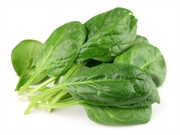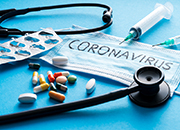
Next time you inspect your salad greens to make sure they look clean, consider this: Researchers are trying to determine if drying leafy greens using the spin cycle of a retrofitted washing machine is safe. Some farmers use the method instead of expensive, commercial-grade spinners to dry leafy greens after they’re washed. But it’s not… read on >




























